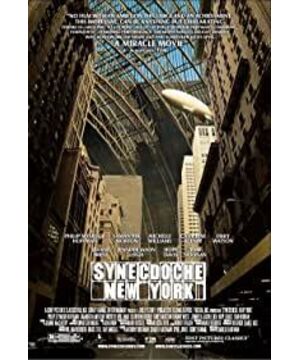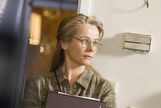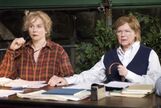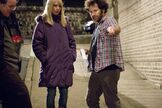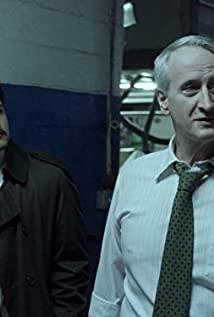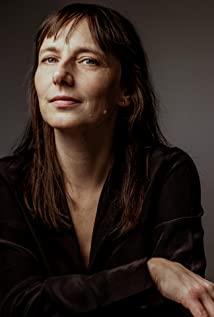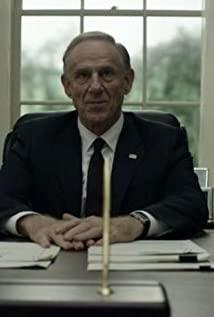"The so-called selfishness of artists means that they are not interested in people themselves. The past history, emotions, and emotions of the other party, if they listen, sometimes just because of loneliness, they want to be wrapped in warmth and words. They are with a person. Together, sometimes I want to observe the extended space brought by the other's words and deeds as an accumulation of feelings. A person with a strong mental strength needs to ask for more potent medicine and energy. He is almost indifferent to the people around him Concerned."-"Su Nian Jin Shi"
I think this is the feeling that the hero in the film, or Charlie Kaufman himself, brings me. I think the film is a work of Kaufman's self-reflection. In the film, the male protagonist can't actually see the real people around him, he only sees himself, and he is the only person in the world. Because his connection with the world is broken, an umbilical cord is missing between him and the world. Therefore, such a character who appears to be very nihilistic, such a character who is always evading, does not want to face reality, does not want to be responsible, does not want to confront the world, and bury himself in nothingness. Self-blaming but not facing up to the problem and solving the problem.
To cite a few examples: After Adele left, after a year, Kayton did nothing, waiting for something to happen, waiting for her to return; Heysel, who sold the tickets, told him that she would not return, and then he He got better with Heysel, but cried again when making love; Heysel was angry and had a new partner, Kayton escaped again, married Claire in the drama and had a daughter. When he was held accountable, he came back and wanted to care about his first daughter. He flew to find her, pretending to be sad because the pink box he bought before was abandoned; while on the plane, he kept peeping at the psychologist. He had a chance, but he pretended to be a gentleman turning a blind eye; after Claire couldn't stand his emptiness, he went back to Heysel again... and so on. After her mother was killed, in front of her bloody room, she did nothing and had sex with the actor who played Heysel. In the end, he even played the role of a cleaner, and let the one who played the role of the cleaner act as himself, so as to avoid the responsibility and choice of Kayton.
Not once did I face the problem squarely, and I never solved the problem face-to-face, acting as a wounded person so that I could have feelings.
Including other roles, there is a saying that each role is part of the screenwriter or director's self. What Adele said to the psychiatrist and what the psychiatrist said on the plane actually showed ease after she had let go of responsibilities. They are all better because they don't have Kayton in their lives.
And Heysel’s house that has been on fire is like an unsolved problem that we can always see clearly in our lives. In the end, Heysel died from smoking too much smoke, just like if we let these dangerous factors exist and do not solve them, it will eventually cause backlash and engulf us.
At the beginning, the news broadcast pointed out what the film wanted to express.
Finally, the pastor's play also revealed the theme of the film, what the director wanted to say.
If you say "movie is to materialize spiritual things." I think Charlie Kaufman did it.
This is the solipsism of the film creator and the nihilism of the creator.
And nothingness is not so vain and helpless, not so terrible. It exists after every desire is satisfied, every time we feel lost, and every time our lives are hit hard. Even a child is still experiencing the emptiness brought by the toy being broken.
Nothingness means existence, which means life is a prelude to rekindling enthusiasm. Even if autumn means the beginning of the ending and winter means the end of the year, there is still another year. In the dynamic balance between nothingness and reality, look for things that make us think happy and find the meaning of life that we recognize. Because we don't have to be the people that others love, it's enough to let ourselves be who we like.
Tucao talked about the protagonist and Charlie Kaufman, and talked about the opening paragraph of the film.
The opening paragraph, a few minutes condensed for a few months, is one of my favorite paragraphs in this film.
Said in McGee's "Story", who is hailed as the scriptwriter of the Bible--
"Structure is the choice of a series of events in a character's life story. This choice combines events into a strategically significant sequence to stimulate specific and specific emotions and express a specific and specific outlook on life."
Screenwriters choose events, just as we choose who we become in life.
A movie for two hours, our lives are so many decades, it is limited. So what we choose is very important.
As a screenwriter, when conceiving the climax of the film, we often face the protagonist with a dilemma, such as letting his body hang outside the building and holding the edge of the roof with one hand. At this time, the villain forces him to choose a career or a lover and money or Love...The choice of the protagonist is often to remind him of his own behavior.
Therefore, if everyone is sometimes at a loss and loses themselves and does not know who they are, your next choice, no matter what, this choice and your behavior will reveal "who you are".
View more about Synecdoche, New York reviews


